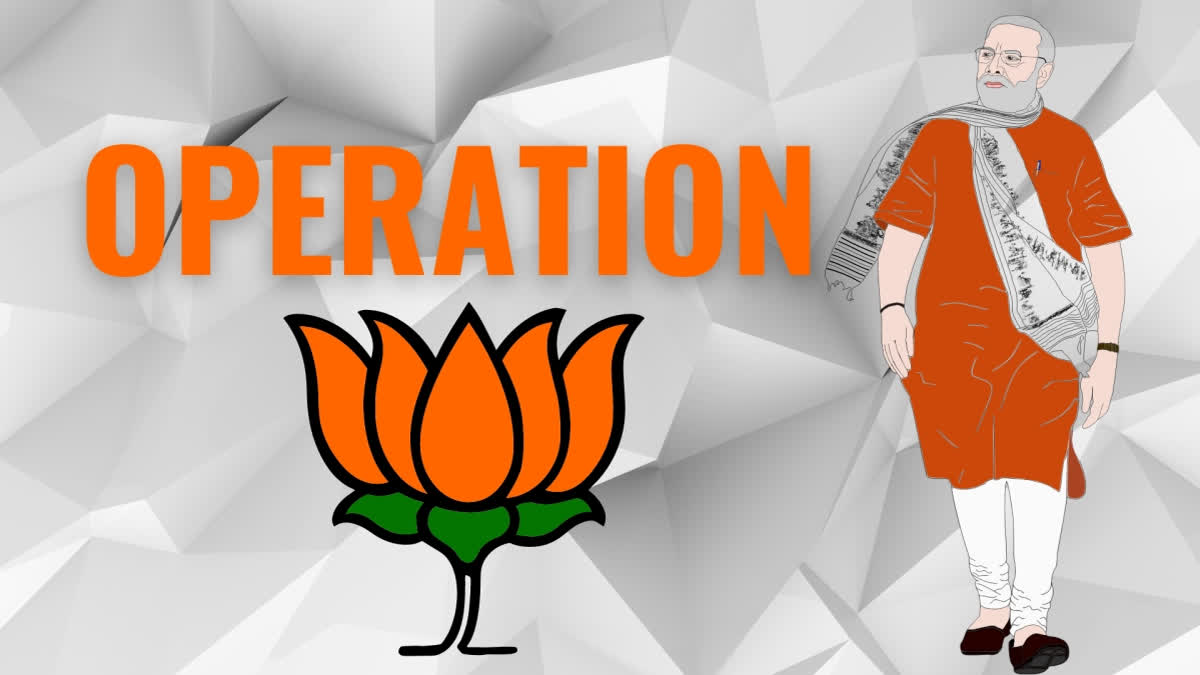Bengaluru (Karnataka) : Karnataka, located in the south-western part of India, is a state that has been ruled by a variety of political parties over the years. The Bharatiya Janata Party (BJP), which was once a minor opposition party, has now become a dominant political force in the state. This political shift was not sudden but rather a gradual one, marked by various events that took place over a period of time.
In 1983, BJP first had its representation in the state, but it remained an opposition party until 1994 when Janata Dal formed the government with 115 seats, and the Congress fell to 34 seats. BJP managed to win only 40 seats and thus became the opposition party. In the 1999 elections, BJP's fate did not change, and it won only 44 seats.
The 2004 elections brought about a new direction for the BJP in Karnataka. The party emerged as the single largest party with 79 seats, but it had to sit as the opposition as no party got the majority. The Congress-JDS coalition government was formed with Dharamsingh as the Chief Minister and Siddaramaiah as the Deputy Chief Minister.
However, in 2006, Siddaramaiah resigned from the post of Deputy Chief Minister and left the JD(S), leading to a sudden political change. A large group of the JD(S) left the coalition government with Congress, and a new coalition government was formed with the BJP under the leadership of HD Kumaraswamy. Thus, for the first time in the state, BJP became the ruling party from the opposition line.
According to the power-sharing agreement, Yeddyurappa was supposed to become the Chief Minister in October 2007. However, Kumaraswamy refused to give up the post of the chief minister, and Yeddyurappa and all BJP ministers resigned against the JDS move. The BJP withdrew its support to the coalition government, and President's rule started in Karnataka. The conflict between the BJP and the JDS ended on November 7, 2007, and Yeddyurappa was sworn in as Chief Minister on November 12, 2007.
In the 2008 elections, the BJP secured a simple majority by winning 110 seats and formed the government with the support of 6 non-party MLAs. Yeddyurappa assumed office as Chief Minister. Operation Kamala (Lotus) was conducted for the first time in the state to secure the government. MLAs from Congress and JDS resigned and joined BJP, leading to by-elections in 14 constituencies. The government was secured by gaining more than the required number of seats through the by-elections.
However, Yeddyurappa had to resign due to his name being included in the investigation report issued by Lokayukta of Karnataka regarding illegal mining. Sadananda Gowda and then Jagdish Shettar became the chief minister. Yeddyurappa left the BJP and formed an independent party called Karnataka Janata Party (KJP) in 2012, resulting in a big setback for the BJP in the 2013 elections. The ruling BJP won only 40 seats, and it also lost its position as the opposition party to the JD(S). Siddaramaiah became the Chief Minister of the Congress government in 2013.
However, in the 2014 Lok Sabha elections, BS Yeddyurappa returned to the BJP, and the party regained strength in Karnataka. In the 2018 assembly elections, the BJP emerged as the single largest party by winning 104 seats, and Yeddyurappa was sworn in as Chief Minister. However, the BJP could not prove a majority. As a result, JDS and Congress formed a coalition government and HD Kumaraswamy became the Chief Minister.
In 2019, Yeddyurappa, the leader of the Bharatiya Janata Party (BJP), orchestrated Operation Kamala (Lotus) once again, resulting in the resignation of 17 members of the Congress Janata Dal Secular (JDS) coalition. Following this, Yeddyurappa formed a government with the support of 13 new MLAs, who won in the by-elections held for 15 constituencies in December 2019. Of these, the BJP won 12 seats, the Congress won two, and an independent candidate also won. However, by-elections were not held for Muski (Raichur district) and RR Nagar (Bangalore South-West) constituencies, as there were petitions pending in the Karnataka High Court.
The BJP has a history of using Operation Kamala to gain power in Karnataka. In 2008, the BJP formed a government independently after strengthening their numbers through Operation Kamala. And in 2019, they used the same strategy to secure power for the second time. With this successful operation, the BJP established a strong foothold in the state.



